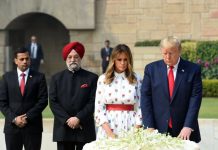
Clearly, if Srinivasan wishes to put his best foot forward, he and his family need to sell the entire equity, or at least most of it, in CSKCL to a new buyer in a transparent transaction. Even after the deal, the BCCI chief would need to further prove that he, family members and India Cements did not exercise any other form of control over CSKCL. Indirect control has been defined in the Companies Act as either the power to appoint the majority of directors, or the ability to influence board decisions.
Those who know Srinivasan’s mind confide that a complete sellout to a third party will be the last choice that he will exercise. Somehow, he will try to retain the branding-marketing nexus between India Cements and CSK. This was the commercial rationale behind the purchase of the IPL franchise in the first place. As he told stock market analysts in 2008: “It is not a sudden impulsive act. This (purchase of CSK) was a very clear, cold and analytical position with a view to build our (cement) brands more extensively and deeply throughout the important market that we have in Tamil Nadu.”
He argued that India Cements’ competitors such as Grasim and Ambuja Cement had effectively utilised cricket as a medium to propagate their respective brands. He gave a few examples. UltraTech Cement had bought the advertising space along the boundary lines, as also on the playing field during India’s tour of Australia. In several Indian international matches, Ambuja Cement had advertised on the sightscreens. However, Srinivasan felt this was an expensive way to leverage cricket.
According to his figures, these cement companies spent Rs 30 crore each to buy advertising spaces on specific cricket tours. “Now what we have come up with is a very innovative method of improving our brand without spending anywhere near the money that my competitors spend,” he told the analysts. In the case of CSK, India Cements would get cricket-related advertising spaces virtually free. The reason: the cement company had to pay $9 million annually for the franchise, and earned a similar amount each year from its share of the centralised sponsorship, telecast and other rights.
Between 2008 and 2014, India Cements actually made huge profits on CSK. In 2013-14, the franchisee’s profits may have been around Rs 70 crore. And this is not even accounting for the benefits that India Cements derived from the IPL team in terms of lower marketing and advertising expenses. To put it in another way, India Cements’ advertising costs were Rs 35 crore in 2013-14, or less than 1 percent of its annual revenues. The figure was a lower 0.6 percent of annual revenues in 2012-13.
Obviously, Srinivasan would wish to retain the CSK connection, which has enabled India Cements’ brands to improve market share and expand their presence in north India. So, what can he do and still convince the apex court that his intentions are honest? During the demerger process — or the delinking of CSK from India Cements — he can distribute his share of CSKCL’s equity to the rest of the shareholders in the same pro-rata basis. This will cheer India Cements’ investors and still retain linkages with CSK.
At the same time, he can ink a discounted deal with CSKCL that will allow India Cements to use the franchisee’s name to advertise and sell the cement products. Although this will prove to be expensive — India Cements will have to spend money — the deal can be sweetened. Given Srinivasan’s largesse, CSKCL’s investors may agree to it. In the Supreme Court, the BCCI chief can argue that this is a “commercial transaction” and not a “commercial interest”. India Cements, Srinivasan and his family have no stakes in CSKCL, whose shareholders have consensually agreed to sign the branding-marketing agreement.
Time, though, is not on Srinivasan’s side. The BCCI election is scheduled in the first week of March. Therefore, he has to complete the demerger and sale of his equity in CSKCL. Then he has to convince the apex court’s three-member committee that it is a deal that keeps him at a distance from the franchisee. More importantly, he has to keep his ego aside.
letters@tehelka.com













